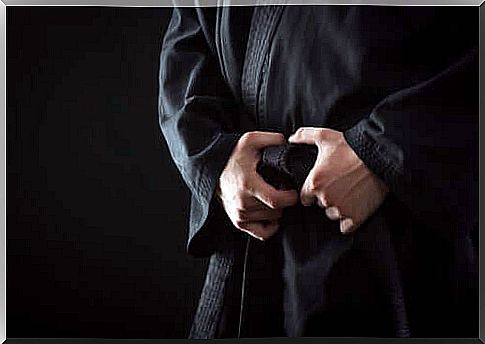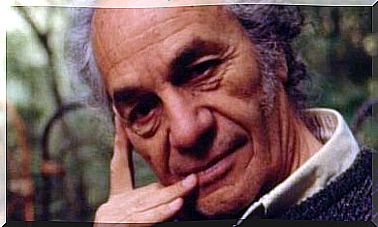Self-defense According To Eastern Philosophy

At certain times in life you have to be capable of self-defense. No matter how peaceful you are, sooner or later you will find yourself in a conflict where someone will try to force themselves on you or limit your ability to act in a certain way.
Or maybe someone will insult you in some way and you will feel like you have to respond. The most common response to aggression or insults is hitting back. Someone is yelling at you, so you yell too.
Or someone attacks you in a physical way and you react the same way. This is the natural response. In the western world there are no real guidelines on how to defend yourself in a different way.
Eastern philosophy, on the other hand, has given much attention to war, strife and conflict. The martial arts are just one product of this. A core aspect of this is self-defense. So if you want to learn a little bit about self-defense through the lens of the martial arts, keep reading and discover some key elements.

The philosophy behind self-defense
The martial arts avoid confrontation except as a last resort. That is the basis of the strategy both in terms of attack and defense. All the tactics involved have to do with neutralizing your opponent or simply convincing him not to fight from the start.
Everything you do or say in self-defense must follow the basic principles: do not destroy, injure or humiliate your opponent. Doing so would only increase their desire for violence. However, remember that it is not the goal of the martial arts. The goal is harmony.
Eastern philosophers knew that a conflict always demands a high cost. When the harmony is broken, the best thing you can do is find a way to bring it back, not intensify the problem or let it go further. This is the first principle to keep in mind in self-defense.
The attitude is fundamental
If you find yourself in a situation of physical aggression, Eastern philosophers recommend staying calm. That calmness must also be present in your body. It should look relaxed and not tense.
That is something you can achieve with practice and breath control. If you take slow, deep breaths, your muscles won’t be as tense.
The art of defending yourself against physical attacks also involves the following actions:
- Keep as much distance from the attacker as possible.
- Do not make mechanical or automatic movements. Always move purposefully.
- Take a step back and think. Try to understand what the other person means.
- Learn to fall and get up again.
- Try to use your view of the environment to get a more complete picture.
- Keep your body straight, with your feet firmly on the floor. However, your muscles should still be relaxed.
This is a very simplified version of what the martial arts tell you to do in a conflict. Each of those points has a specific underlying philosophy. Years of experience are needed. However, that doesn’t mean you can’t use them as a useful framework and guidelines for your practice.
In essence, physical attacks are also very similar to verbal attacks. They include similar mechanisms. Only the instruments differ. So you can actually apply the same basic principles of physical self-defense to verbal attacks.
Verbal Attacks
Eastern philosophy says that you should never allow anyone to verbally insult or humiliate you. However, that doesn’t mean you should respond with the same tactics. There are other strategies you can use.
Many of those strategies actually have to do with body language. You want your body to send a message of firmness and peace. Here are some tips for posture and actions:
- Look the verbal attacker in the eye for a moment. Then soften your gaze without looking down.
- Look at the other person with a calm gaze and then move backwards.
- Don’t let your shoulders slump. Maintain a straight and balanced posture.
- Don’t shy away from eye contact, no matter how uncomfortable the situation is.
- Finally, don’t speak if the other person isn’t listening.

If you are understanding and compassionate towards the other person, you will know how to defend yourself. To do that, of course, you must first know yourself, understand yourself and know how to convey your own emotions.
If you find yourself in a verbal confrontation, there are three strategies that Eastern philosophy recommends.
- You withdraw. This is a good choice when the other person’s attitude or situation makes you think things are likely to get really annoying. This means you either say nothing, or leave or change the subject.
- Calling a truce. You should do this when you see that the other person is reasonable or seems hurt by the conflict. In this case, you should try to reach an agreement.
- Do nothing. Here’s what to do if you feel the attack is unjustified or if you’re not sure the person is right. In this case, keep calm and be silent, ideally with your eyes closed.









